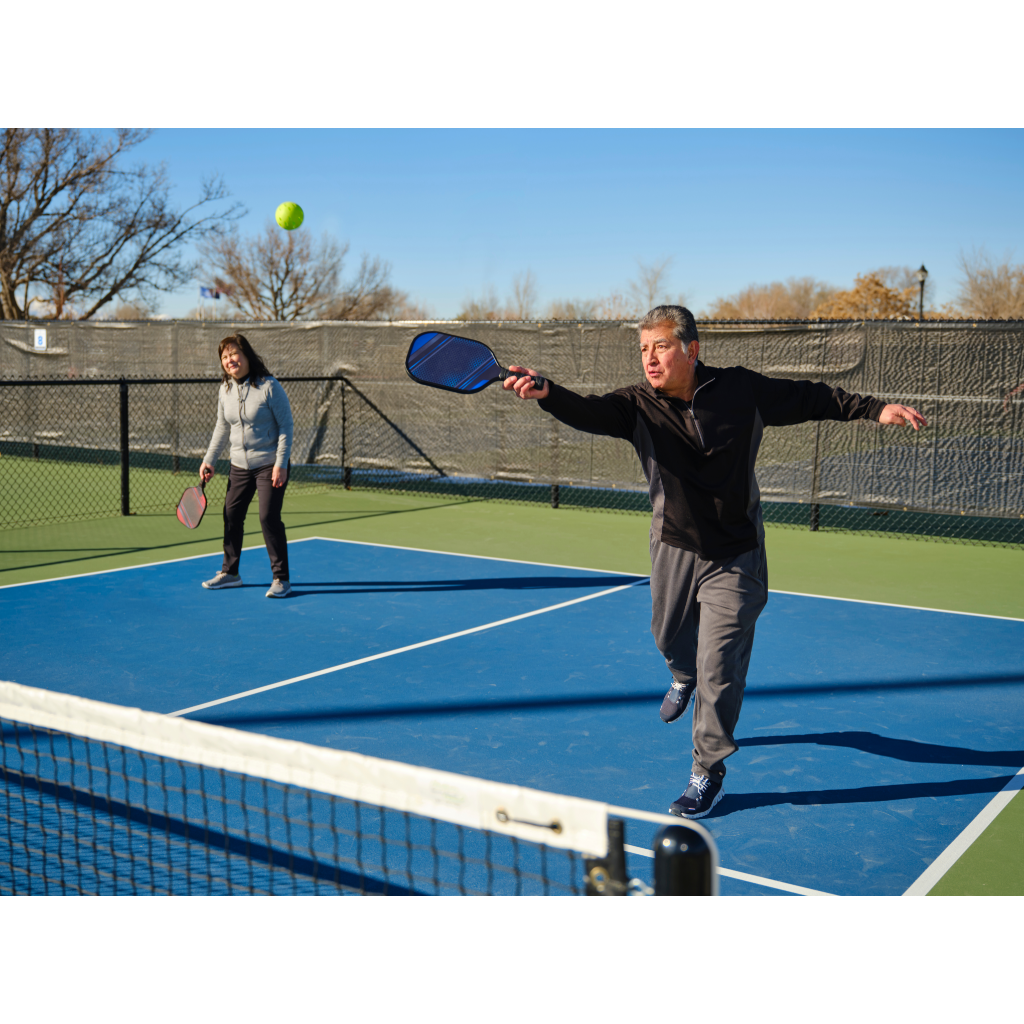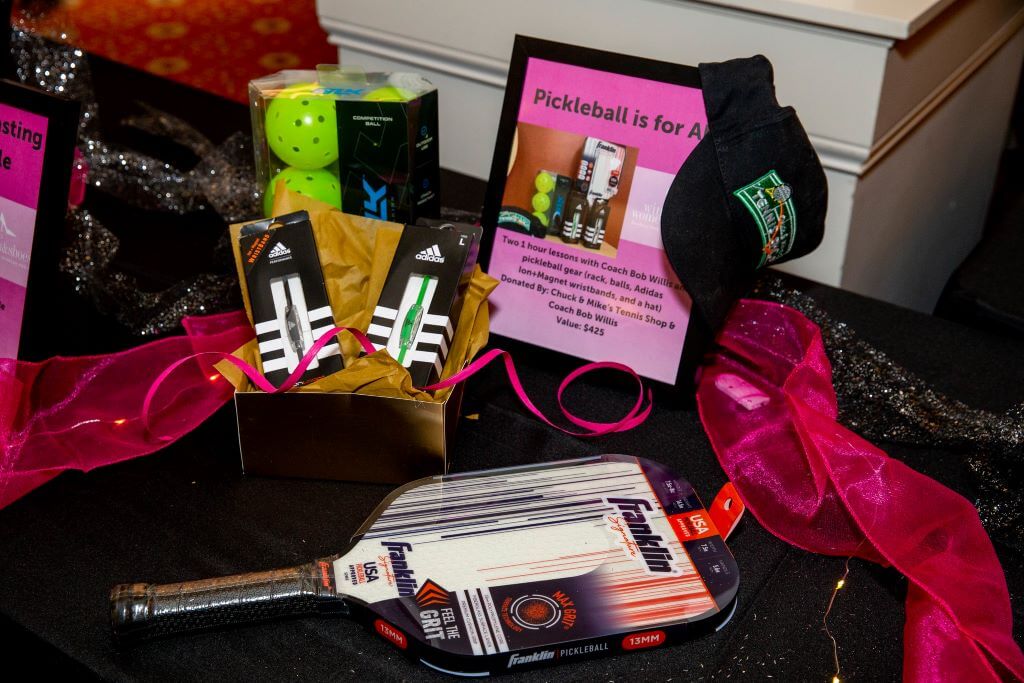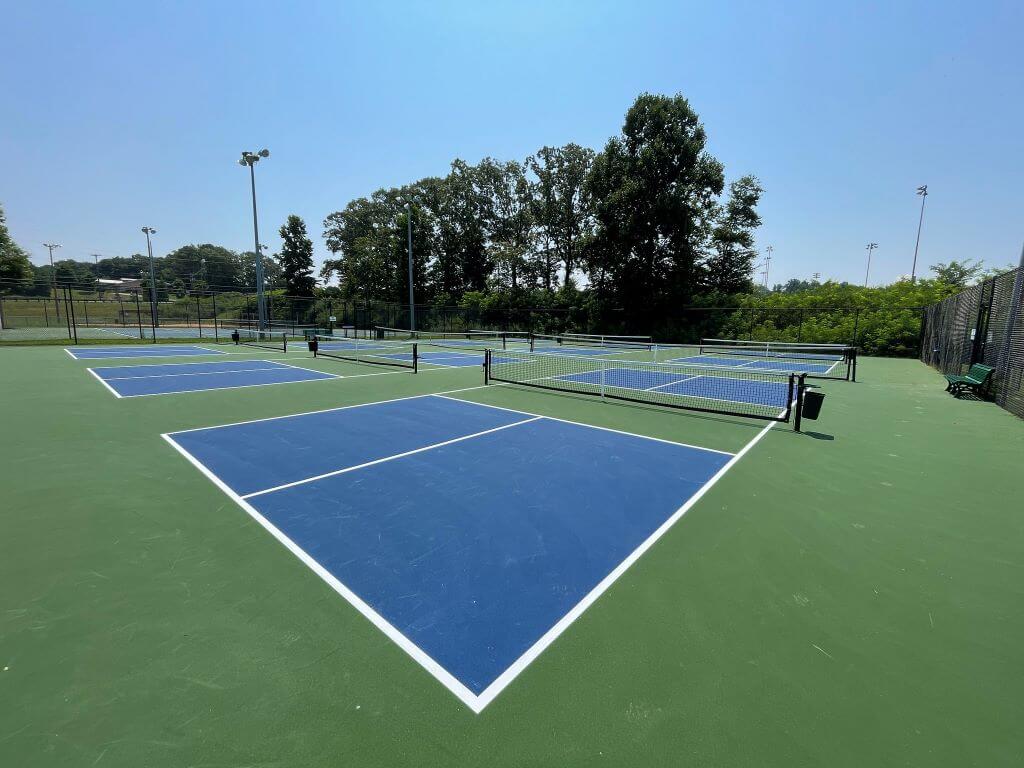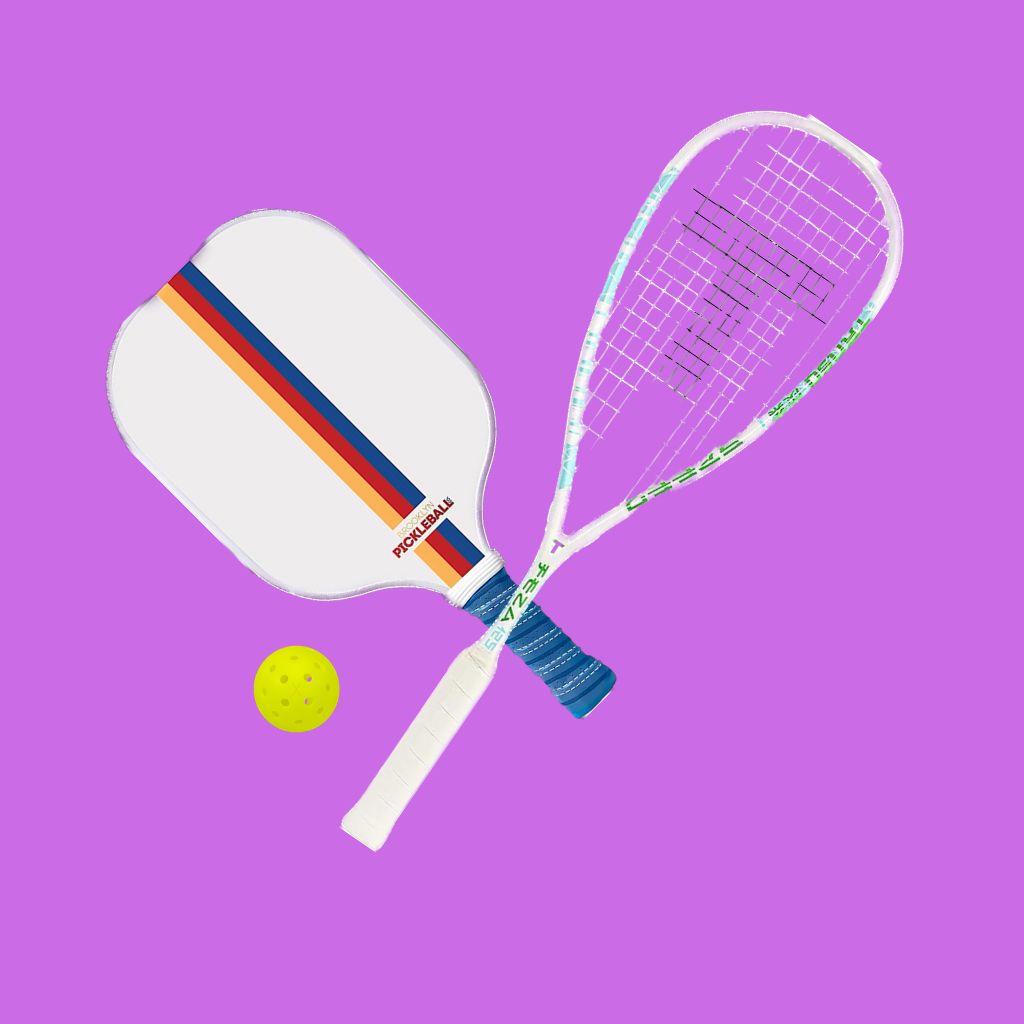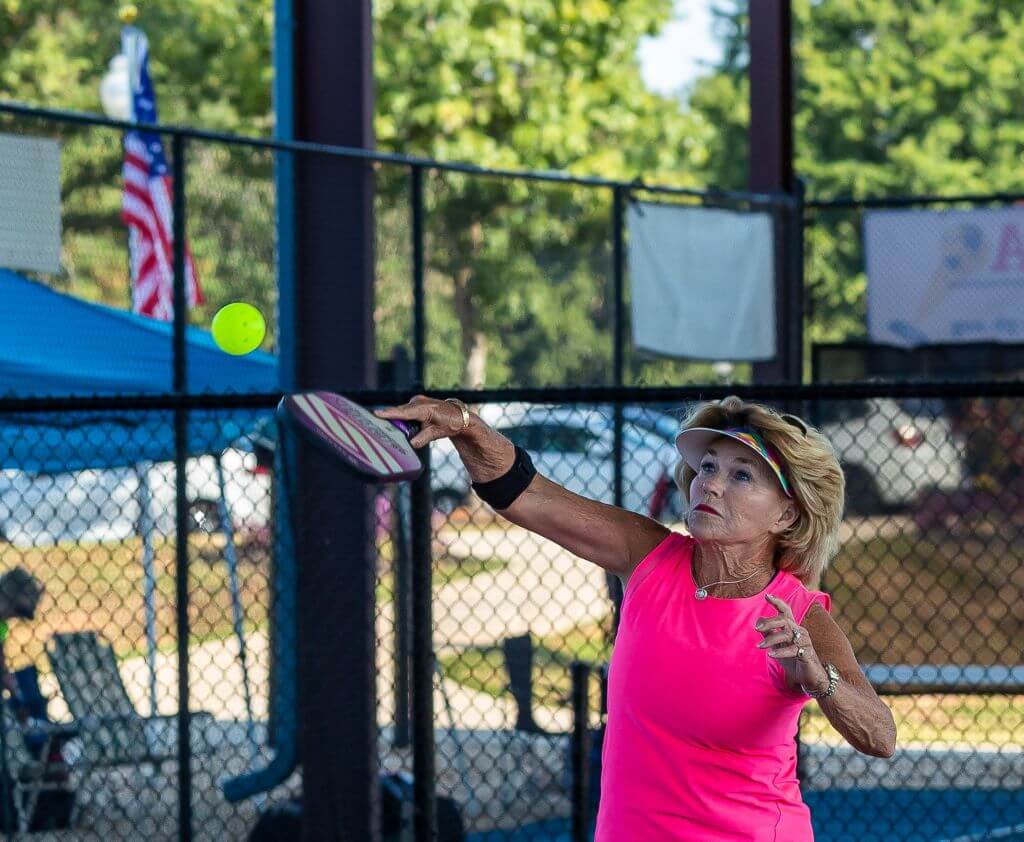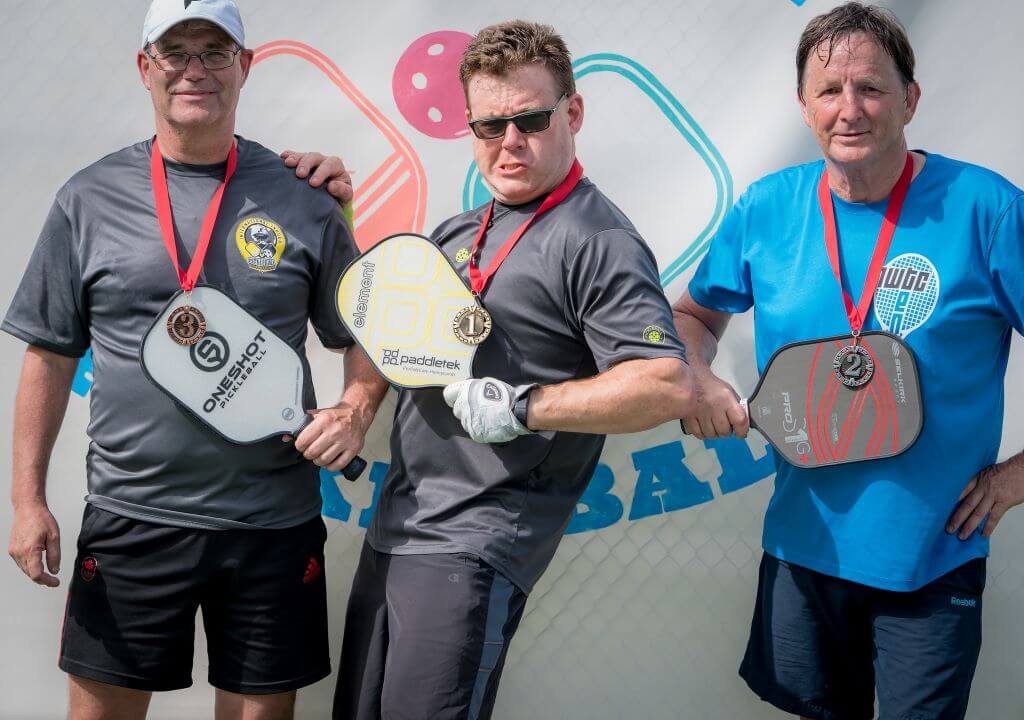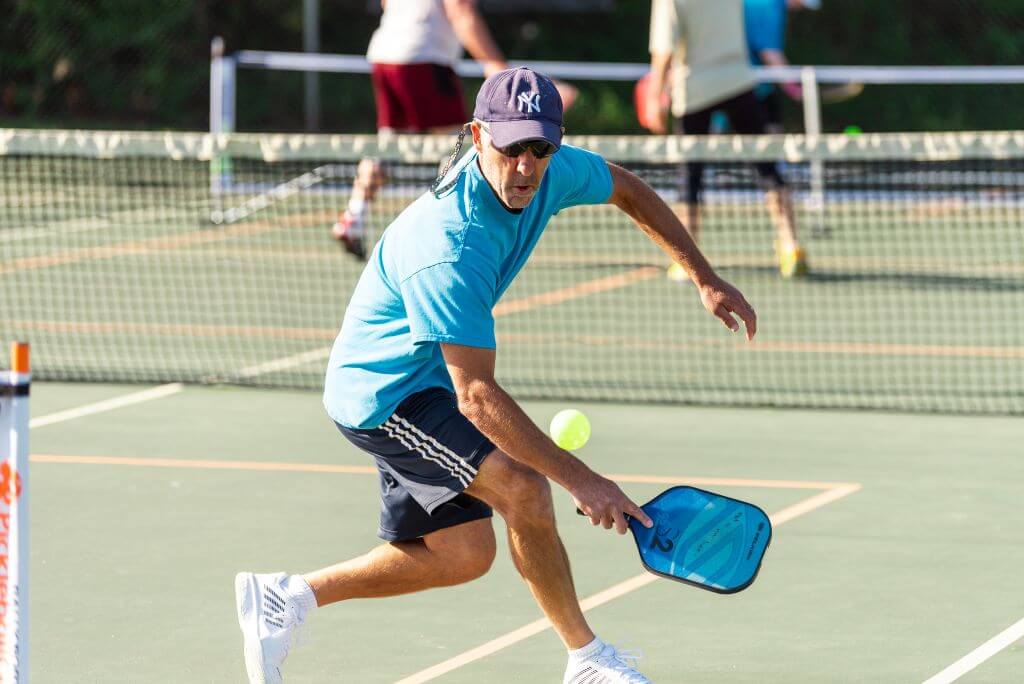In pickleball, the ability to play strong defense can often spell the difference between winning or losing a rally—and ultimately, the match. It’s not enough to know how to make shots. Finding the best pickleball defense strategies for you can both improve your game and make it more enjoyable. After all, pickleball is a highly strategic sport.
When you’re able to keep the ball in play and make your opponents work for every point, you put yourself in a position to take control of the game.
So what are the best pickleball defense strategies? In this blog post, we’ll talk about five of the most effective defensive techniques that will help you win more games. It doesn’t matter if you’re just starting out or if you’ve been playing for a while, be sure to read on!
1. Get Low
One of the most important things to do when playing defense in pickleball is to stay low.
This will give you a lower center of gravity, increasing your balance, power, reach and reaction time. More muscles are engaged, and your arms will be able to extend further towards the net, where quick movements and changes in direction are necessary to react to your opponent’s shots effectively.
All these combined make it easier for you to move around the court. It also puts you in a better position to reach low balls. So next time you’re playing, make sure to keep your knees bent and your butt down!
2. Use Your Non-Dominant Hand
Using your non-dominant hand can be a great way to improve your pickleball defense.
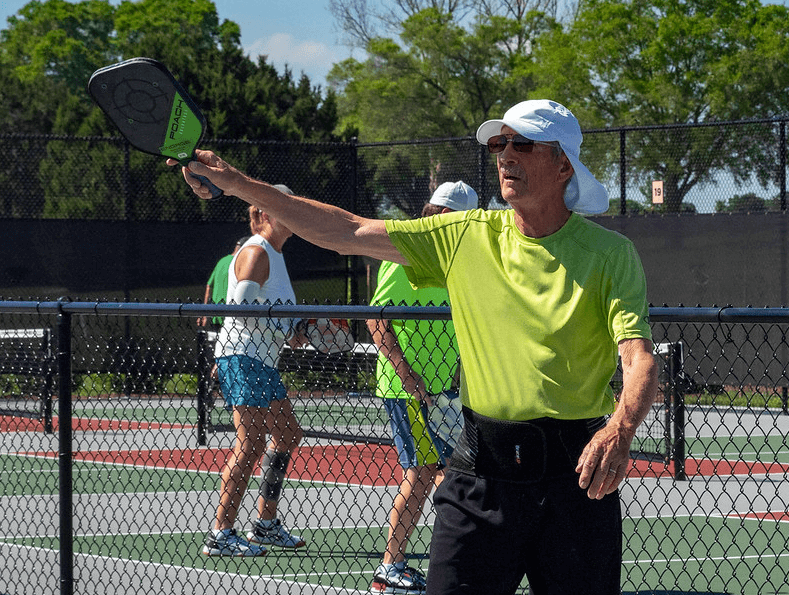
Most people play using their dominant hands. And why shouldn’t they? Your dominant hand has more strength and control compared to your non-dominant hand. But that is also precisely why practicing with both hands and switching between them easily is crucial for defense.
Being able to comfortably use both hands means you can extend your reach and increase your court coverage. This gives you a better chance of returning difficult shots. You may initially find it challenging to maintain balance and control using your other hand, but, with practice, you can and will improve your overall balance and stability on the court.
A better-balanced stance enhances your ability to react to your opponent’s shots and make you more adaptable in your defensive play. You can switch between forehand and backhand shots more effectively, making it harder for your opponent to predict your responses and exploit weaknesses in your defense.
Don’t be afraid to give it a try next time you’re on the court!
3. Stay Loose
When playing defense, it’s important to stay loose and relaxed. Your loose muscles and joints enable you to be more nimble and light on your feet, so you can quickly change directions and move swiftly around the court, making you better able to react to your opponent’s shots.
If you’re tense, you’ll tire more quickly. Tension in your muscles can lead to unnecessary fatigue during a pickleball match, not to mention injuries. Staying loose means less muscle contractions, which means conserving energy. A relaxed body posture can also help you stay focused and make better decisions during high-pressure situations on the court.
To stay loose in your pickleball defense, focus on consciously relaxing your muscles, particularly when you’re not actively engaged in a shot. You can practice this during warm-ups, drills, and practice games to make it a natural part of your playing style. Simply jumping up and down and staying on your toes is a great way to stay loose. In fact, this is something professional tennis players use for extra agility.
4. Be Patient
Patience is key when playing pickleball defense.
You can’t just charge at every ball that’s hit your way—you need to wait for the right opportunity to make a play. If you’re patient and able to wait for your opponents to make a mistake, you’ll be in a much better position to win points.
Think of it this way: defense is not about denying the opposing team’s ability to score points, it’s about creating an opportunity for yourself to be aggressive when the opponent makes a mistake.
Trust us—it’s worth being patient!
5. Communicate With Your Partner
Finally, don’t forget to communicate with your partner when playing doubles pickleball!
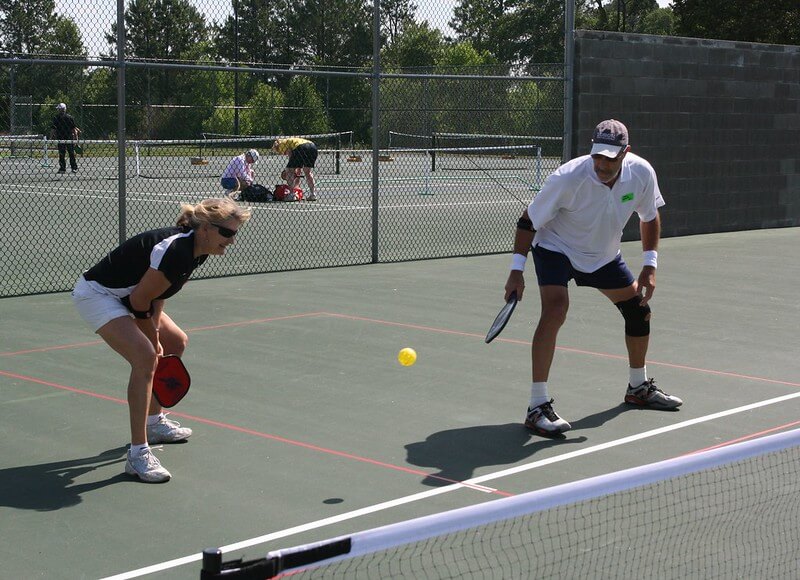
Talking or even just signaling with each other can help you both get into a better position and make plays on the ball. Here are some benefits to learning how to effectively communicate with your partner during a game:
- You and your partner can anticipate each other’s movements and reactions by using verbal cues like “YOU” or “ME” to indicate who should take the next shot.
- Pickleball is fast-paced, so collisions happen quite often. Yelling, “SWITCH!” when running down a lob helps prevent collisions and ensures both players are in the right position to defend the court.
- Communicating about who will cover the middle of the court is essential. Decide before the match who is responsible for covering the middle gap to prevent opponents from exploiting it.
Communication with your partner goes beyond just verbal cues. Non-verbal communication, like eye contact and body language, is equally important. These can quickly convey important information, like your readiness to receive a shot or your confidence in a particular play.
Be succinct, don’t blame each other, and always offer words of encouragement! Remember that pickleball is supposed to be a fun sport.
Conclusion
Pickleball is a great sport that can be enjoyed by people of all ages and skill levels. And while winning isn’t everything, there’s no denying that it feels good to come out on top every once in a while! Fortunately, there are plenty of things you can do to improve your pickleball game—including working on your defense.
So if you want to win more games, be sure to try out some of these defensive strategies next time you’re on the court!
















